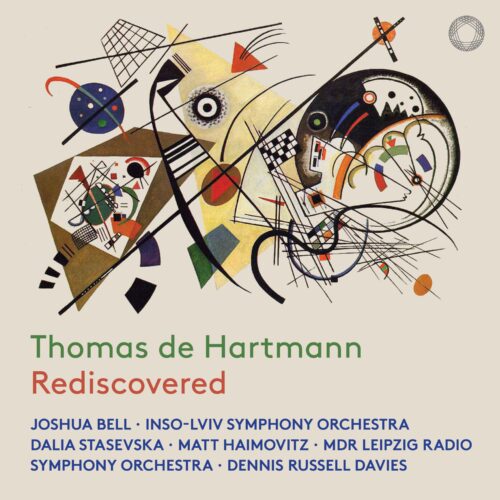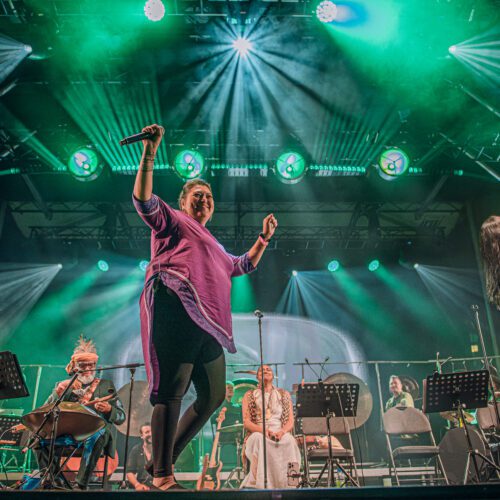The problem with Thomas de Hartmann, which may explain why he sank into oblivion after his death, is that he spent part of his life promoting the music of the self-taught mystic George Gurdjieff, who wrote (with Hartmann’s help) a great deal of evanescent music of an esoteric bent. Long before the current fashion for restful neoclassicism and world-flavoured crossover, Gurdjieff was writing exotic orientalist (mainly Armenian in colour) and practically pre-New Age music, which displeased the ‘serious’ establishment of post-war art music and did great harm to the reputation of his partner, De Hartmann, a composer of solid training. The fact that he was Ukrainian by birth may also have played a part, as specifically Ukrainian culture was deliberately diluted in that of the 20th-century Russian-dominated USSR. De Hartmann was thus relegated far behind more famous figures such as Prokofiev and Shostakovich.
Be that as it may, this album throws a spanner in the works by daring to rehabilitate Thomas De Hartmann as a composer of substance rather than one of Gurdjieff’s ‘stooges’. The programme includes two substantial concertos written in a resolutely Romantic idiom.
Of the two, the Violin concerto (completed in 1943) is the more substantial. Here, the Romanticism inherent in De Hartmann’s pen is substantially amplified by harmonically modern passages and an assertive orchestral muscularity that would not have displeased Prokofiev. What stands out about this composer is the narrative force of a music constructed with fervour. From the first movement, the painting of a vast world rich in detail, to the whimsical, playful Minuet, via the magnificently lilting Andante and the vivaciously intense Finale Vivace, De Hartmann presents a lively work fully deserving of a more active concert life. Joshua Bell masters this kind of repertoire and sound universe perfectly, and he is brilliantly supported by the Ukrainian Orchestra under the feverish direction of Dalia Stasevska.
The Cello Concerto dates from 1935. It is based on Jewish harmonic signatures and inflections. Less daring than the one for violin, it nevertheless has some very fine details of colouristic writing, such as the beginning of the central Andante, which is also one of the finest slow movements I know of in any concerto. Pay attention: the poignant melody has something of Bloch’s Prayer, also for cello. The two outer movements are seductive and engaging, especially the Finale allegro ma non troppo, in the form of a smiling pastoral rondo. Montreal cellist Matt Haimovitz, of Jewish faith, seems to take this little-known music, which sounds like a little hidden treasure, to heart. Dennis Russell Davies conducts the MDR Leipzig Radio Symphony Orchestra with precision and great attention to detail.
The recording of this concerto was released in Europe last year, but it has only recently been coupled with the violin concerto to make a complete album.
These are two exciting discoveries that should be listened to carefully if you like lush orchestrations and beautiful melodies.
























